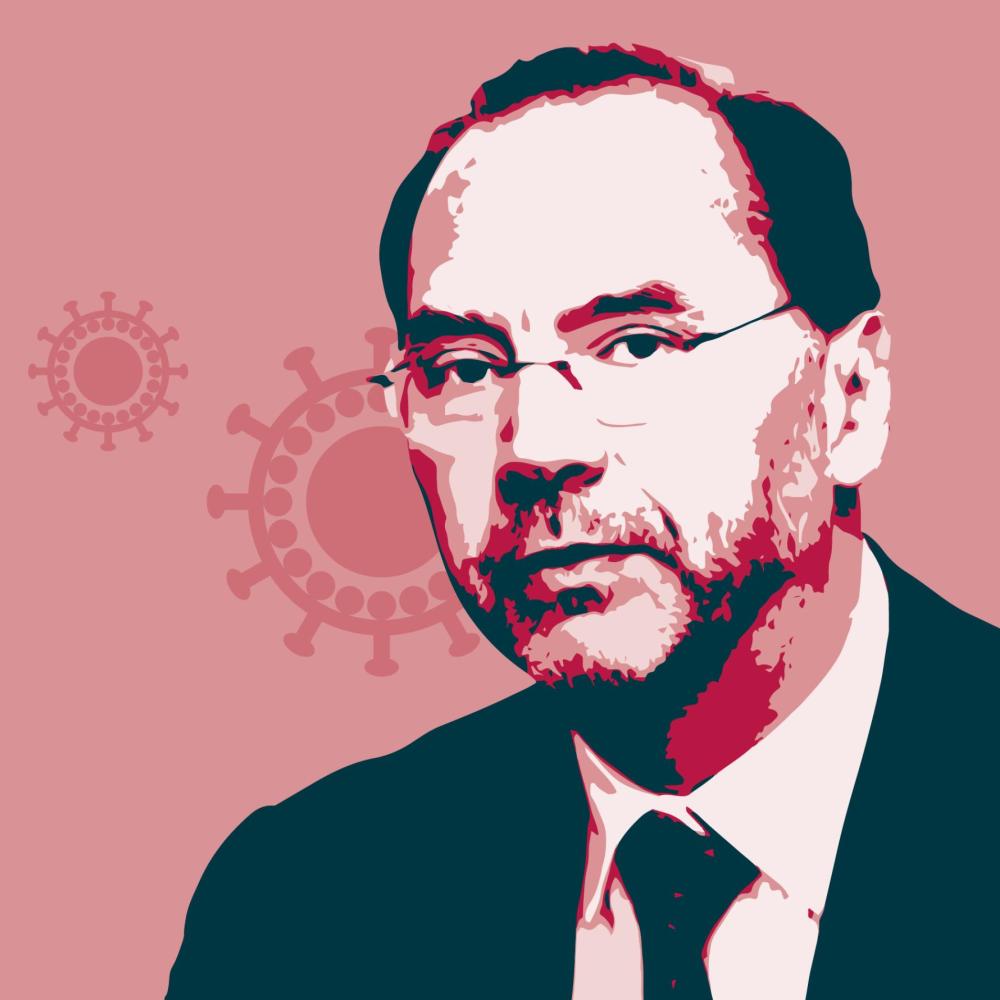

Peter PIOT (°1949)
Profession: Epidemiologist
Nationality: Belgian
Why an honorary doctorate?
It is 1995 when Peter Piot receives an honorary doctorate from VUB.
Versus the virus
He is a medical pioneer: an enemy of the enemy. His in-depth research and diligent approach saved and still saves lives, taking virus control to a new level. His persistence in dissecting what is unknown, mysterious, often elusive and life-threatening yields results that enrich science and health care beyond measure and save mankind from suffering in equal measure.
Those who wish to counter their enemy must know his weapons. Nipping what is small in the bud so it cannot grow large. Ah, the logic. But words flow more easily than deeds. Focus, investigate, test, double and triple check: they are the essence. And also: looking ahead and writing scenarios for hypothetical scenarios. That works in a scientific context, but doesn't it actually apply to everything?
"In order to stop an epidemic, you need to know how the virus is transmitted."
About his career
At the front
1976 Zaire, a young Peter travels with his colleagues from village to village to prevent an uncontrollable pandemic.
No time to lose
Piot's chronicles of his professional life.
1992. Peter Piot is appointed Deputy Director of the National Programme on AIDS and HIV of the WHO (World Health Organization).
2003. Frank A. Calderone Prize for Public Health
2015: John Dirks Canada Gairdner Global Health Award
2016: Mansol medal
Virus enemy
1976. Peter Piot works as a doctor at the Institute of Tropical Medicine. He is fascinated by everything to do with viruses and is part of an enthusiastic team that observes a Marburg-like virus in a blood sample from a sick nun in Zaire. The Marburg virus is similar to the Ebola virus and causes serious and often fatal disease.
Together with his colleagues, Piot sets sail for Zaire. They are part of an international committee set up by the Zairean government to help quell an outbreak of the virus. The team make remarkable discoveries about the way it spreads, and they travel from one village to another to share vital information.
But Piot does more than just fight Ebola. In the 1980s, he participates in a number of cooperation projects in Burundi, Ivory Coast, Kenya, and Tanzania. AIDS is a hot topic these days, and in Kinshasa, 'SIDA', the first international AIDS project in Africa, is underway. There, it is considered the absolute basis of scientific understanding of HIV infection (the virus that causes AIDS).
Piot has a whirlwind career. From '91 to '94 he is president of the International AIDS Society, headquartered in Geneva, Switzerland. Around 1992, he is appointed deputy director of the World Health Organisation's Global Programme on HIV and AIDS. Another two years later, he is appointed director of UNAIDS, the Joint United Nations Programme on HIV/AIDS, and deputy secretary-general of the United Nations.
In 1995, King Albert II raises Piot to the peerage - he is now a baron.
It is 2009 when Piot becomes the first director of the Institute for Global Health at Imperial College London, and in 2010 he heads the London School of Hygiene & Tropical Medicine. He is also a member of a number of academies and a fellow at some universities.
In 2012, Piot's book 'No time to lose' graces the shelves of bookshops. The reader is introduced to the story behind his professional work and the discovery of the Ebola virus.
In 2014, an unprecedented Ebola epidemic erupts in West Africa. Together with his fellow scientists, Piot calls for an urgent release of the experimental ZMapp vaccine, even though it has not yet been tested on humans.
In the years that follow, Piot serves on several health advisory boards. In total, he has written 16 books and more than 500 scientific articles. In 2020, he is appointed as a member of the European Commission's advisory panel on COVID-19. Irony of fate: COVID-19 catches Piot and forces him into hospital. But as befits a true virus fighter, it cannot get him down.
What is an honorary doctorate?
VUB has awarded honorary doctorates every year since 1978 to personalities from the most diverse backgrounds who have made a remarkable contribution to their field and to society. From this solemn moment of recognition, they bear the honorary title of Doctor Honoris Causa of VUB.